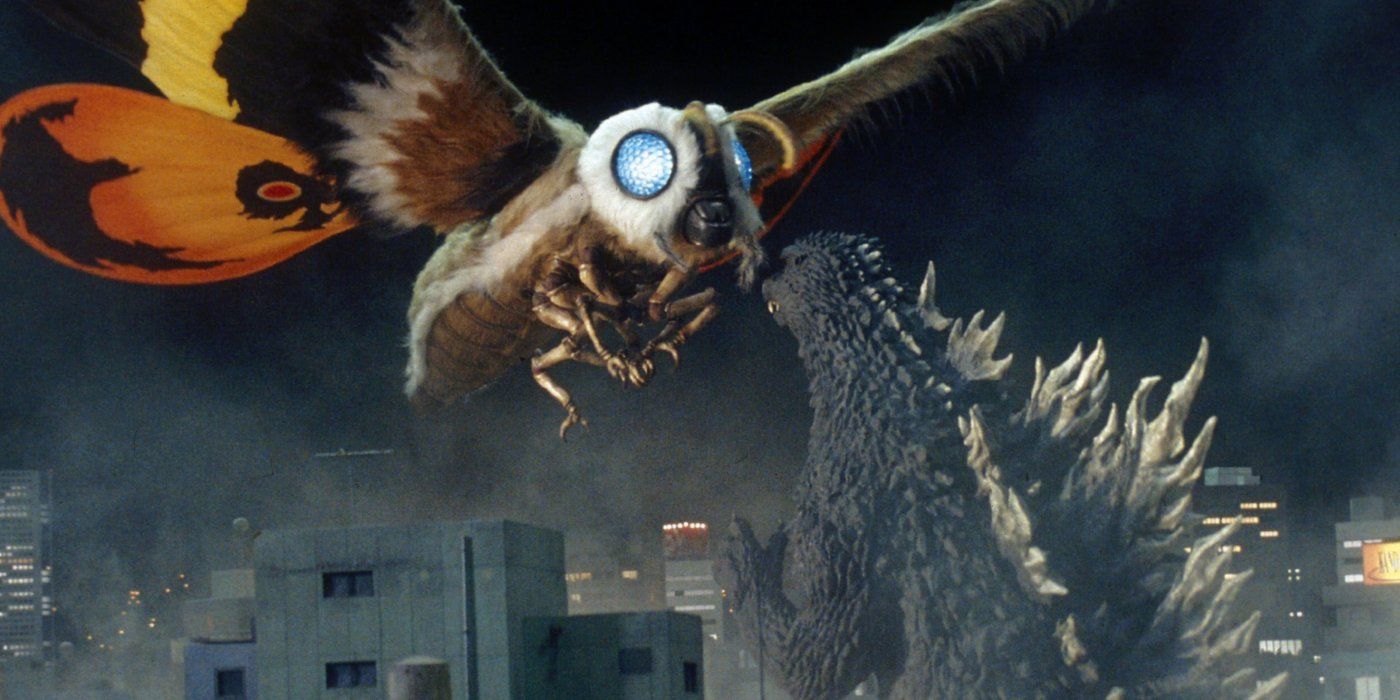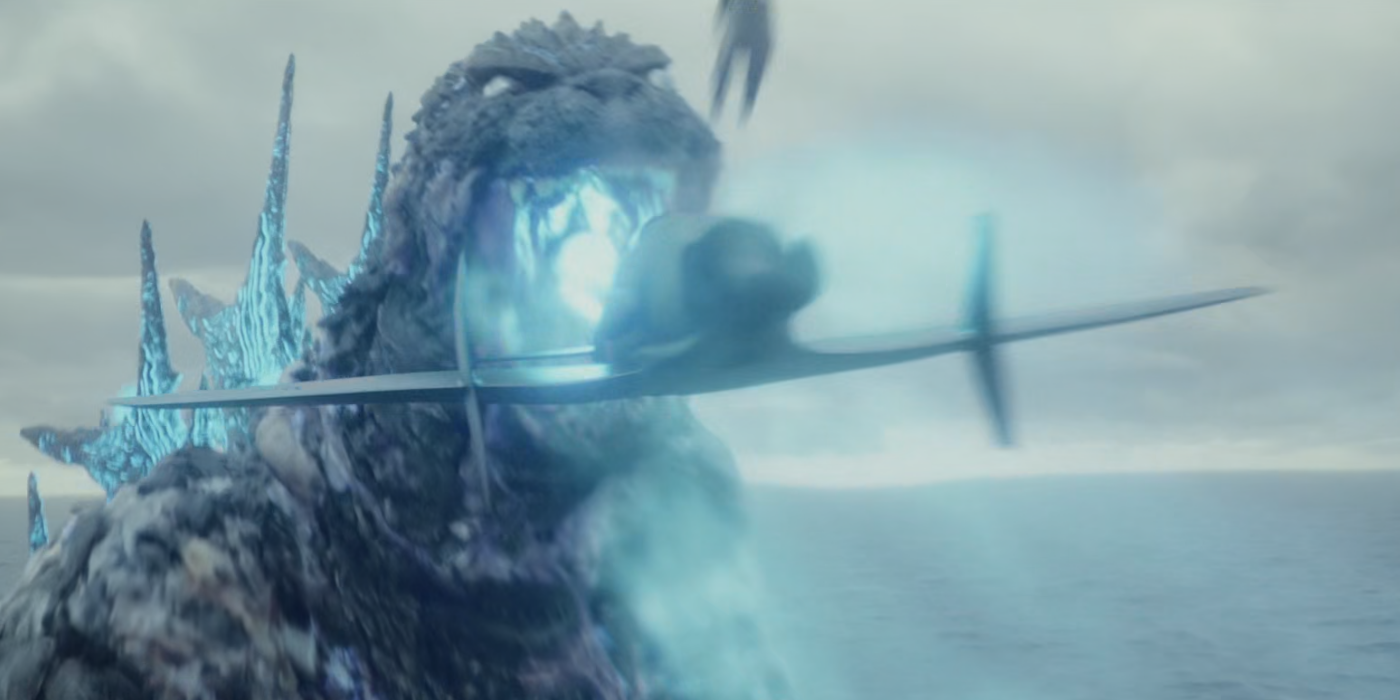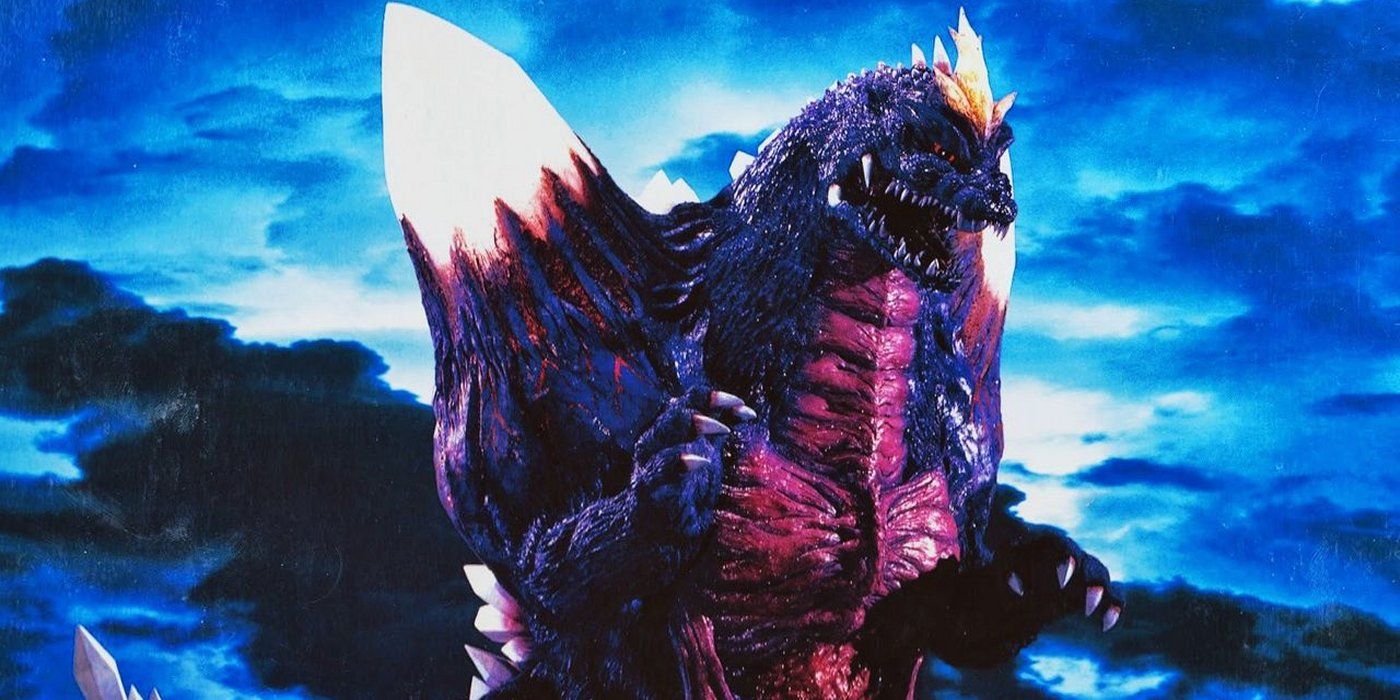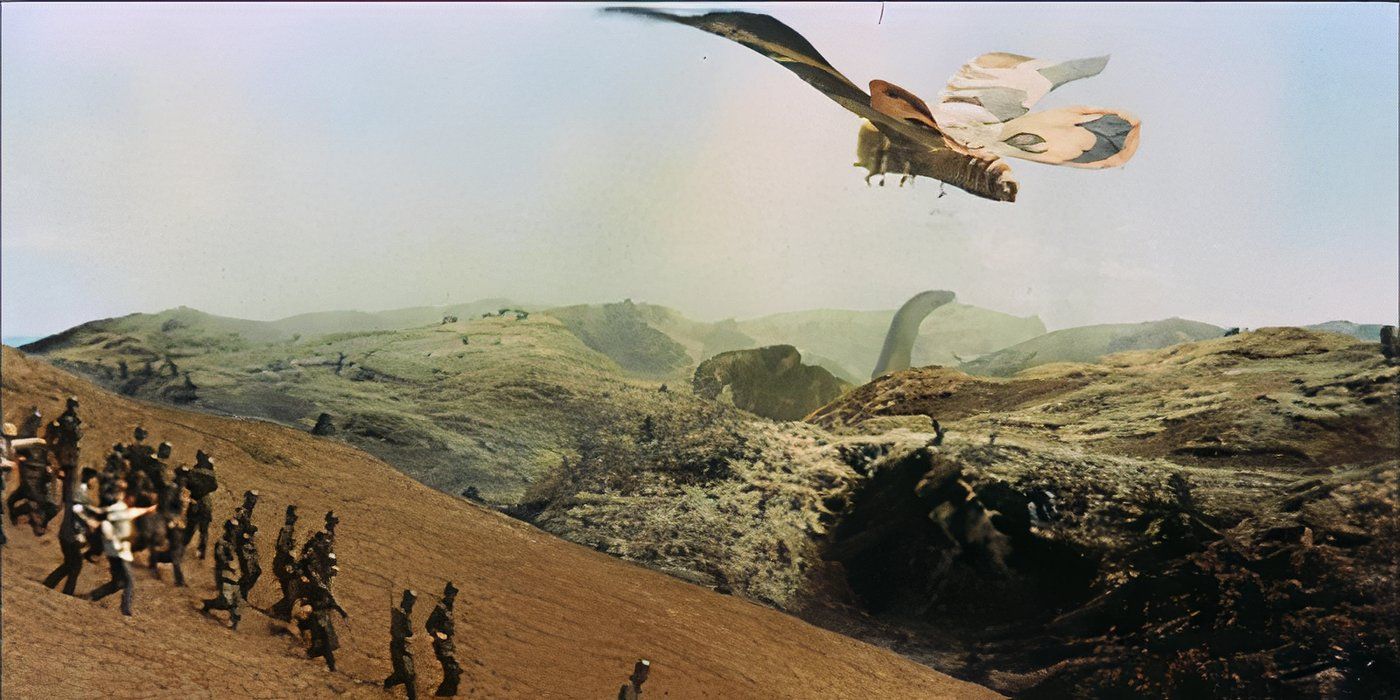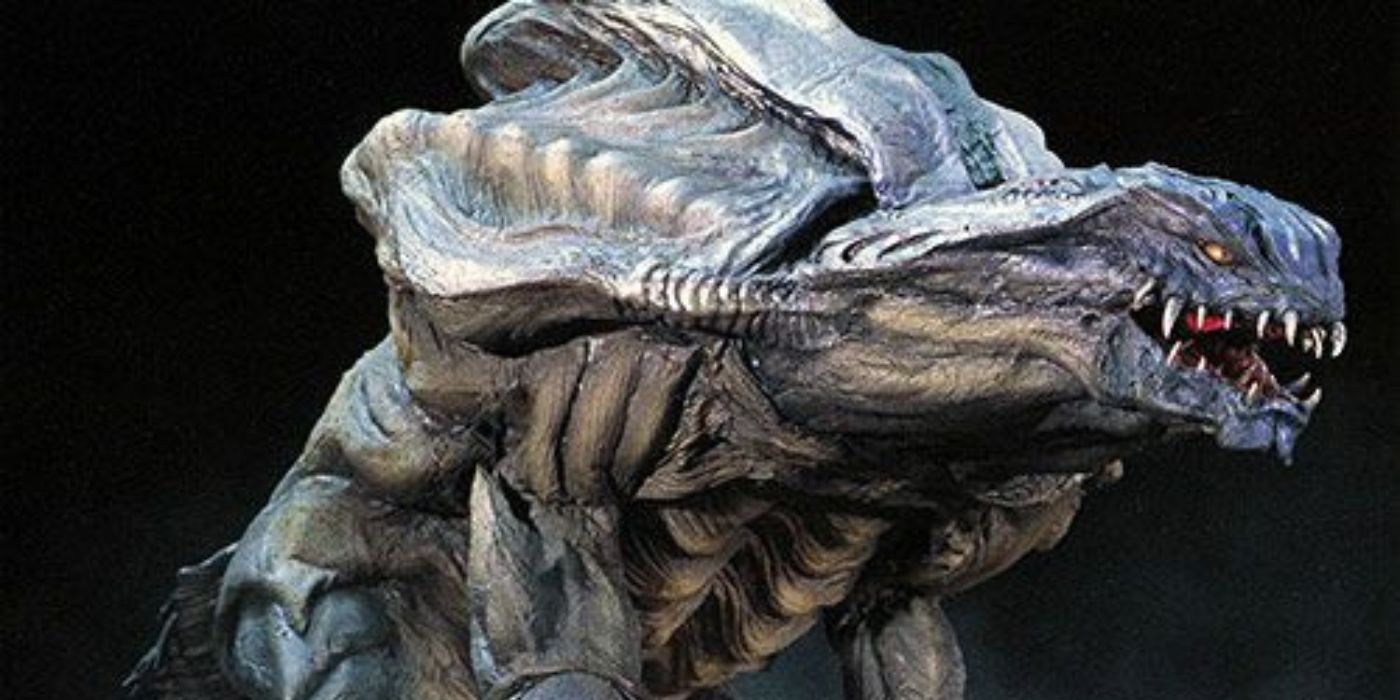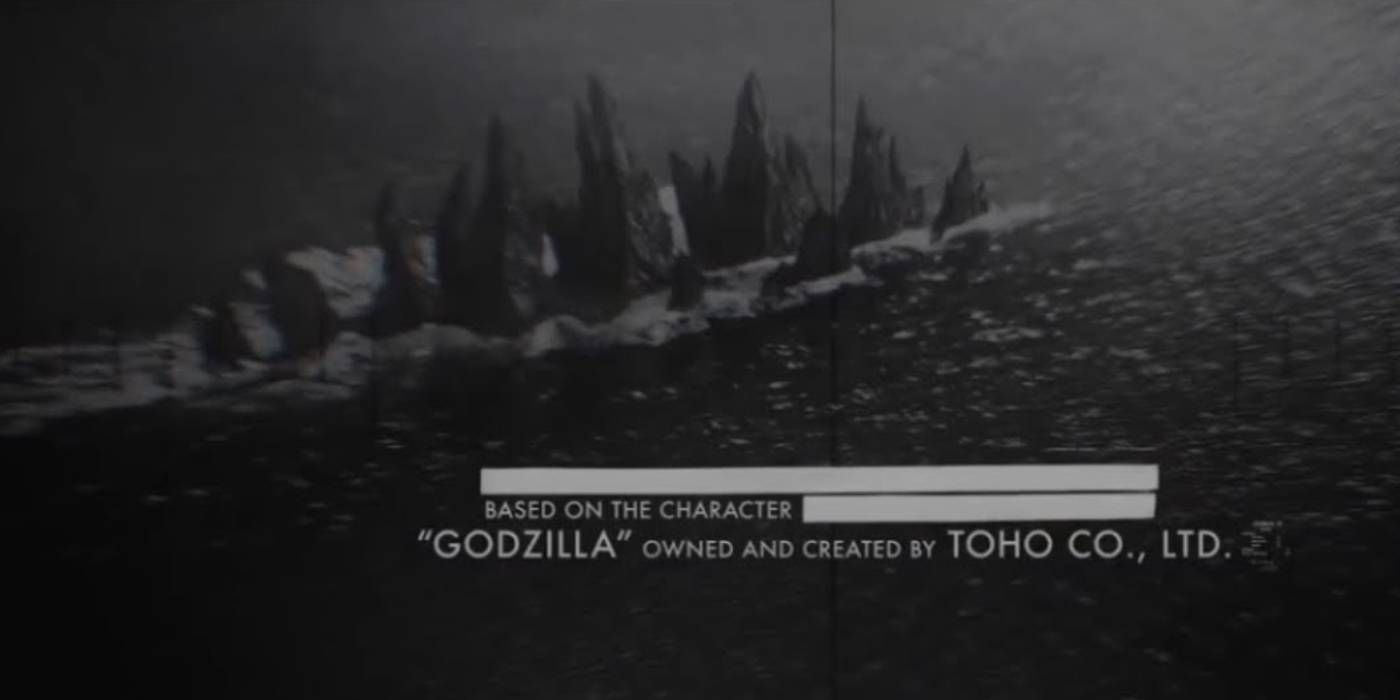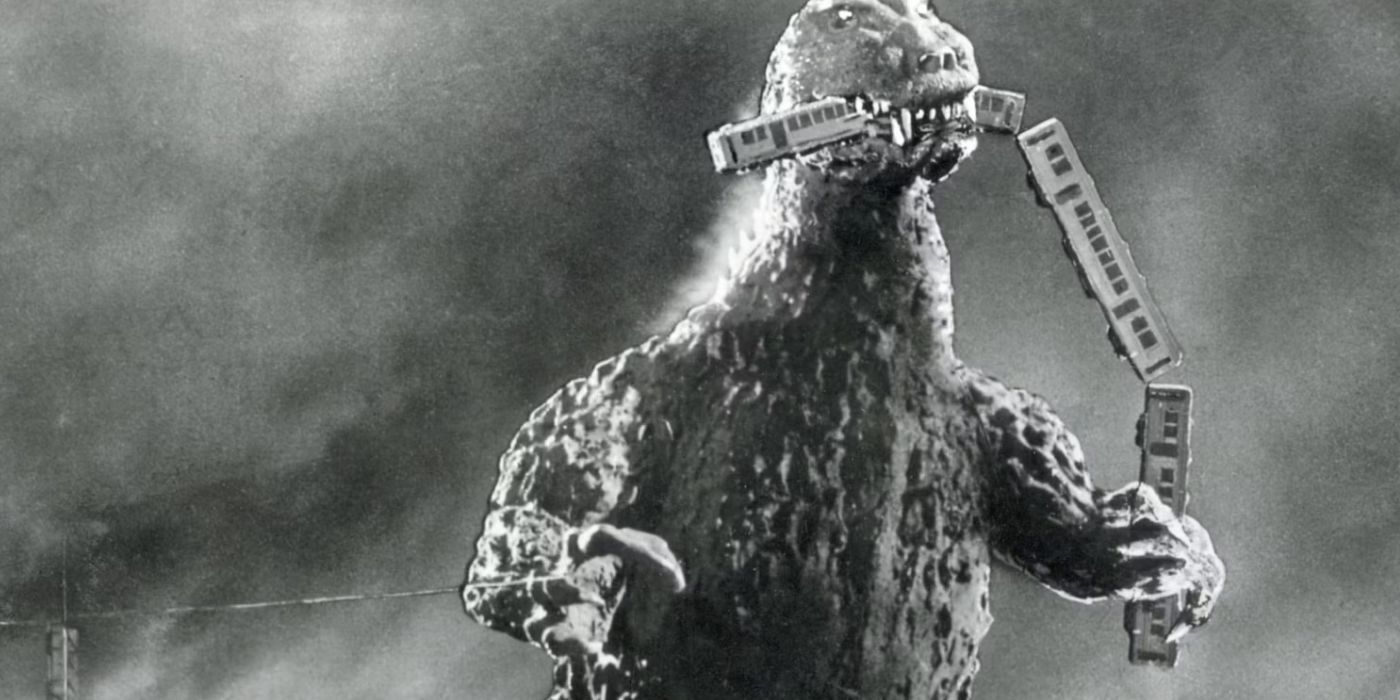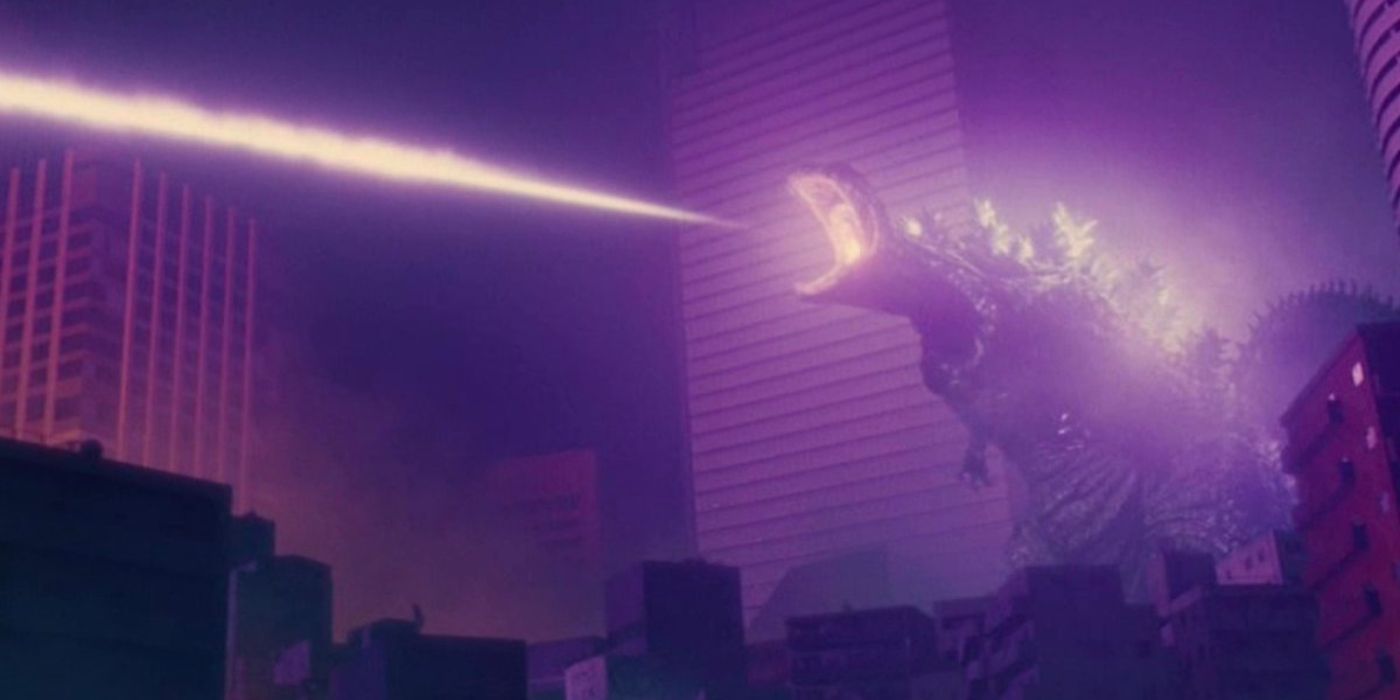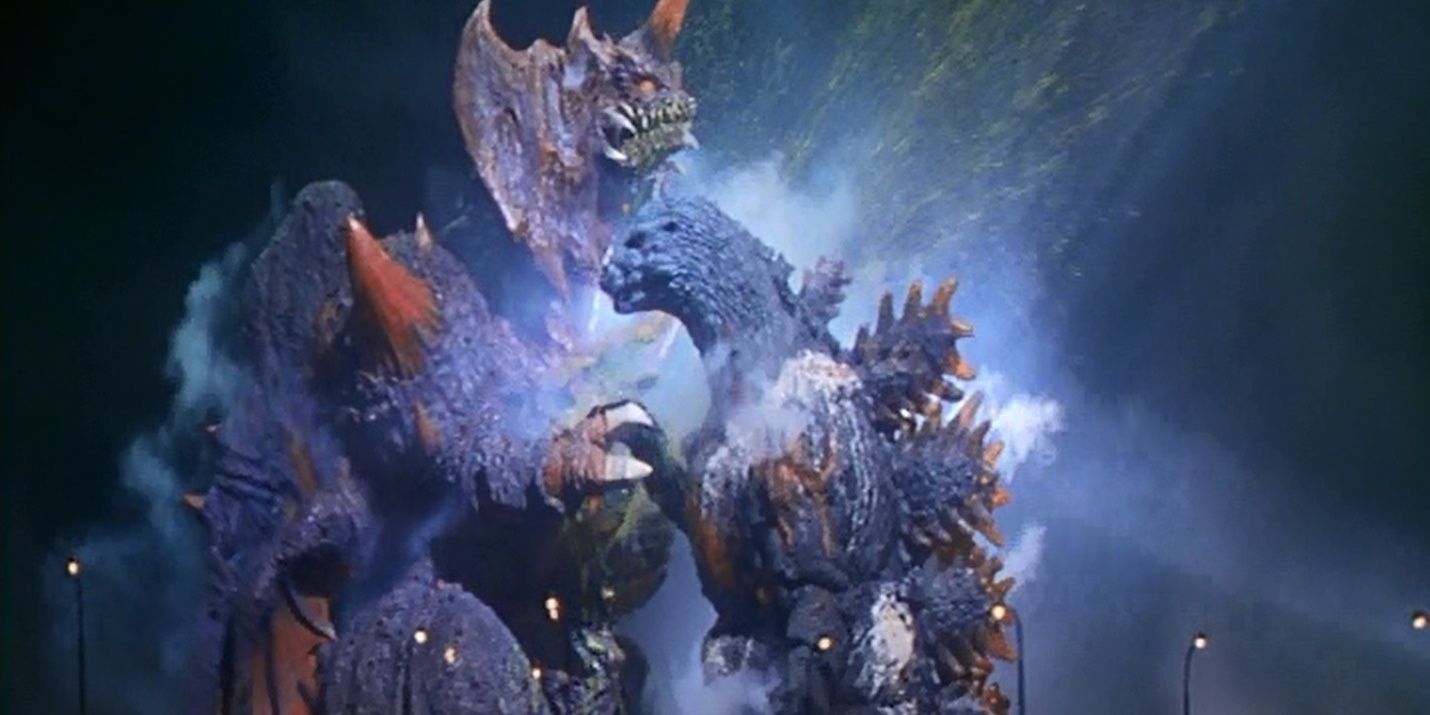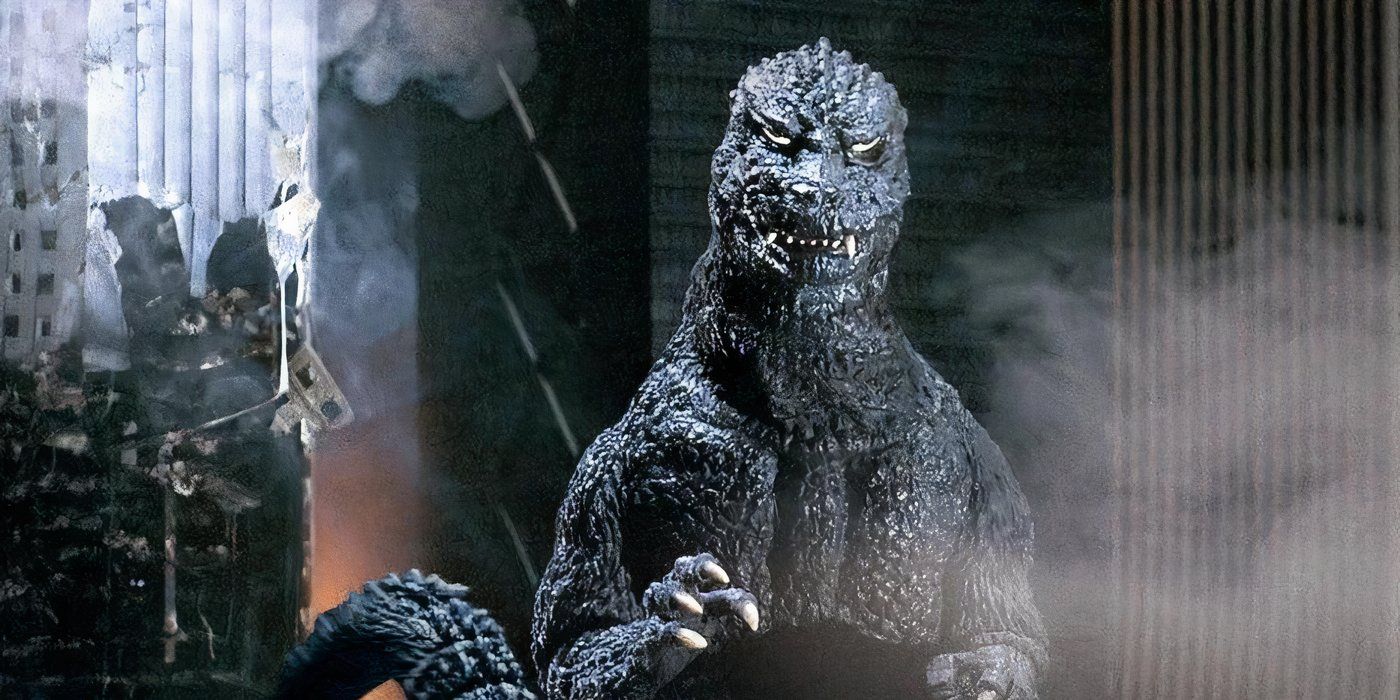Godzilla has a cinematic legacy that comes with a long history of phenomenal soundtracks, enhancing his screen presence to mythical proportions. Ever since Godzilla first came onto the scene in 1954, The King of the Monsters has been accompanied by some haunting scores that heralded his arrival, adding to the epic, weighty feel of mighty footfalls as he rampages across human civilization. Throughout Godzilla’s many movies, some soundtracks in particular stand out for their efficacy.
It’s interesting to see how Godzilla’s themes have evolved alongside him over the many eras of Godzilla films. The more serious movies that posit Godzilla as a villain carry a somber, morbid punch with their scores, while the classic kaiju battles in any Godzilla film with “vs.” in the title are more playful and exciting. Either way, the amount of amazing tracks written in Godzilla’s name are too numerous to count, but a small handful of films do stand out as particularly well-scored.
10
Godzilla: Tokyo S.O.S.
2003
Made at the tail end of the Millennium canon Godzilla movies, Godzilla: Tokyo S.O.S. wrapped up that series’ individual storylines before moving on to the love-letter send-off to practical effects kaiju films that is Godzilla: Final Wars. Godzilla: Tokyo S.O.S. sees the return of Kiryu, the Millennium version of Mechagodzilla built around the literal bones of the original 1954 specimen. Quite drama-heavy for a matchup-centric Godzilla film, Godzilla: Tokyo S.O.S. has a score to match its narrative significance.
Composed by the Millennium saga staple musician Michiru Oshima, the OST to Godzilla: Tokyo S.O.S. is arguably the pinnacle of her work. Godzilla’s theme is as menacing and awe-inspiring as ever, but part of what makes Kiryu such a compelling creature is the sheer tragedy of his existence that the strings of his theme imply. Pepper in an emotional new track for Mothra that makes her inevitable sacrifice all the more poignant, and Godzilla: Tokyo S.O.S. has a tear-jerker score that admittedly could have been rendered better from the page.
9
Godzilla Minus One
2023
Whereas the Legendary Monsterverse movies from the West carry the banner of fun kaiju battles these days, Japanese-made Godzilla movies have recently returned to treating the character as the terrifying villainous metaphor he began as. Enter Godzilla Minus One, which sees a mythical Godzilla mutated by the radiation of the atomic bombs to become a menace that demolishes post-War Japan. The heavier themes and more dramatic weight of Godzilla’s appearance here necessitated an appropriate score.
Luckily, composer Naoki Sato was up to the task. Not only does he unleash a thrumming, bombastic version of Godzilla’s iconic theme from the original 1954 movie, but his original works also supplement the tragedy of circumstance the human characters find themselves in following the war. With breathtaking moments of relief amid the dour dread like Resolution, Sato’s score for Godzilla Minus One may be subtle and reliant on more iconic pre-existing tracks, but still stands out among the wider Godzilla discography.
8
Godzilla Vs Spacegodzilla
1994
Filling in for one of the most famous Godzilla movie composers ever, Akira Ifukube, composer Takayuki Hattori had some big shoes to fill going in to Godzilla vs. SpaceGodzilla. The film introduced one of Godzilla’s most horrific villains yet, the titular SpaceGodzilla, a mutant clone generated from a small chunk of Godzilla’s DNA flung into the void of space and somehow given life in a black hole. Between SpaceGodzilla, the Earth defense G-Force’s giant robot Moguera, and The King of the Monsters himself, Hattori had a lot of space to cover for his first Godzilla soundtrack.
Hattori nails a wide breadth of emotions in his pieces, from the triumphant, heroic G-Force theme to the ominous, forboding SpaceGodzilla track that properly conveys his status as essentially a horror movie villain. The score is good enough to make normally bothersome elements of Godzilla’s films, such as eye-rolling human romances or the presence of Little Godzilla, seem like fun inclusions rather than filler. Some of Hattori’s tracks might seem out of place for a kaiju movie at times, but it’s hard to deny the overall impact of his work on the film.
7
Mothra Vs Godzilla
1964
While Takayuki Hattori did a fine job in his debut, it’s no wonder he had a lot to live up to. Mothra vs. Godzilla is a perfect example of just how impactful Akira Ifukube’s work was on the auditory landscape of Godzilla over the decades. The 1964 film saw Godzilla capitalize further on the success of King Kong vs. Godzilla by pitting him up against another famous cinematic monster, the mighty flying Mothra.
Thanks to Ifukube’s diligence, Mothra vs. Godzilla features one of Godzilla’s best appearances in film, rising from the ground to bellow with a bone-shaking roar to the tune of Godzilla Appears. Mothra is shown plenty of love by Ifukube as well, with the famous twin Shobijin fairies, who act as Mothra’s heralds, getting some new dreamy songs to sing complete with lyrics in Tagalog. Drifting from sinister and heavy to light and dreamlike, Mothra vs. Godzilla is certainly iterative of earlier work, but still stands out on its own.
6
Godzilla 2000: Millennium
1999
Takayuki Hattori came along with Godzilla into the new millennium with Godzilla 2000: Millennium, which sought to revitalize the character for the modern day. Taking place directly after the original 1954 in a new continuity, Godzilla 2000: Millennium sees Godzilla once more feared by the Japanese government as a destructive force of nature, though he does save the planet from the machinations of the hideous alien creature Orga. The film is a big moment representing the leap to a new era of Godzilla films, and Hattori is more than able to deliver.
Hattori is daring enough in Godzilla 2000: Millennium to gift Godzilla with a brand-new theme, although the iconic Ifukube theme does make a brief appearance. Nevertheless, the gentle strings, bombarding brass, and Earth-shaking drums command fear and presence in the viewer when need be, but Hattori also has a remarkable knack for piloting gentler moments with subtlety and grace when need be. As phenomenal as it is, the soundtrack of Godzilla 2000: Millennium does feel just a tad old-fashioned by today’s standards.
5
Godzilla
2014
Yet another evolution of the character came with the advent of the Legendary Monsterverse films, starting with 2014’s Godzilla. This disaster movie establishes a new canon for the King of the Monsters living in a world secretly populated by colossal creatures called Titans that spill forth from the hidden hollow world underneath the Earth’s crust. Here, Godzilla re-appears after lying dormant for years to do battle with a new pair of mutated insectoid mates.
From the moment the film opens, composer Alexandre Desplat proves himself to be one of the best Godzilla composers to ever do it, with the goosebumps-causing track Godzilla! expertly establishing the fearsome creature’s presence across history with a thrilling montage. The rest of the movie is just as impactful with its orchestral punches, lending selling the awesomely-rendered power of the gargantuan Titans in the few scenes they actually battle in. The odd time signatures might bump some musically-inclined viewers, but Desplat’s score was a huge boon to the early Monsterverse.
4
Godzilla
1954
Of course, none of Godzilla’s amazing scores or the films they come from would ever be possible without the original Godzilla in 1954. The now-iconic film told Godzilla’s origin story for the first time, explaining him as an ancient dinosaur preserved deep under the ocean who has been re-awakened and mutated by humanity’s meddlesome nuclear testing. It was here that famed composer Akira Ifukube first cut his teeth on the kaiju genre, changing its musical landscape forever.
Funnily enough, Ifukube was warned by his peers against working on Godzilla, claiming a giant monster movie would hurt his reputation forever. Luckily for everyone, he didn’t listen, and created one of the most monumental movie scores ever with the original Godzilla film. It’s only the actual technical elements of the soundtrack for 1954’s Godzilla that hold it back, but even today, the ominous, glowering, intimidating theme is still a magnificent feast for the ears that sells the horror and awesome tragedy of Godzilla as a metaphor for nuclear war.
3
Shin Godzilla
2016
Returning Godzilla to the shores of Japan, Shin Godzilla began the trend that would later be followed by Godzilla Minus One, using the titanic lizard once again to act as a metaphor for a greater tragedy unique to Japan. This time around, the film uses Godzilla to represent the failure of the Japanese government to react to the devastating Fukushima nuclear disaster of 2011. This means that Godzilla is more of a rampaging animal in pain than an actual character here, just as much a victim of the radioactive destruction as the humans.
The haunting score by anime composer Shiro Sagisu, known for brilliant OSTs of series like Attack on Titan and Neon Genesis Evangelion, certainly understands the tragic nature of this particular Godzilla. In particular, the haunting operatic choir in Who will know that accompanies Godzilla unleashing his atomic breath for the first time deserves to live on as one of the most chilling uses of an original soundtrack in a film ever. It’s breathtaking soundtracks like Shin Godzilla that truly gatekeep the absolute best of the Godzilla series.
2
Godzilla Vs Destoroyah
1995
The final movie score of Akira Ikufube’s career and the final entry in the Heisei era of Godzilla, Godzilla vs. Destoroyah is arguably the best of the famed composer’s works. The film introduces yet another of Godzilla’s most horrifying enemies in Destoroyah, a demonic organism created from the very weapon that killed the original Godzilla, the Oxygen Destroyer. Here, Ikufube gives a dramatic farewell to his old collaborator with one of the most properly intimidating scores ever penned for film.
The OST is a love letter to films from deep in Godzilla’s past, utilizing leitmotifs from King Kong vs. Godzilla, Godzilla vs. MechaGodzilla II, and even non-Godzilla giant monster movies like The War of the Gargantuas. The film delivers Ikufube’s iconic Godzilla theme with none of the limitations of its original 50s incarnation, realized into the lumbering monster it was always meant to be. With destructive percussion and weighty brass conveying the staggering power of the monsters within, the score for Godzilla vs. Destoroyah is one to remember.
1
The Return Of Godzilla
1984
With how much he had already contributed to Godzilla musically by the release of the 30th-anniversary-special The Return of Godzilla in 1984, it says a lot that Ikufube was willing to pass the torch to Reijiro Koroku. Kicking off the Heisei series, The Return of Godzilla once again resets things back to after the events of the original 1954 film, introducing a new individual in the Godzilla species to terrorize Japan. Godzilla is given the full respect he deserves here as the sole monster antagonist once again, with only advanced human weapons and tactics to stand in his way.
Parts of Koroku’s score are amazing at conveying just how scary Godzilla is as an enemy of humanity, with eerie horror-like instrumentation as his dorsal plates breach the water. The Return of Godzilla‘s score is unique in that it focuses on tension over spectacle, befitting for a story playing on the nuclear tensions of the Cold War. Somber, varied, and intruiging without losing sight of what makes Godzilla special, The Return of Godzilla has perhaps the most unique and memorable OST of any kaiju film, which is saying a lot.


